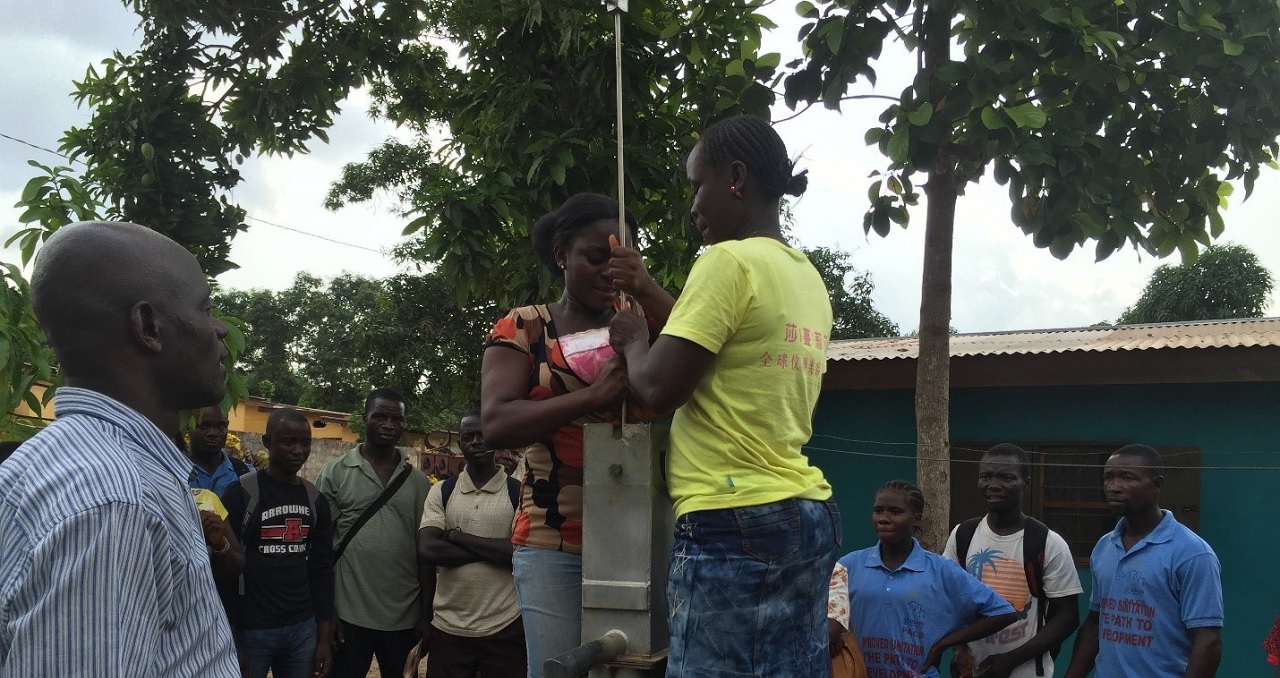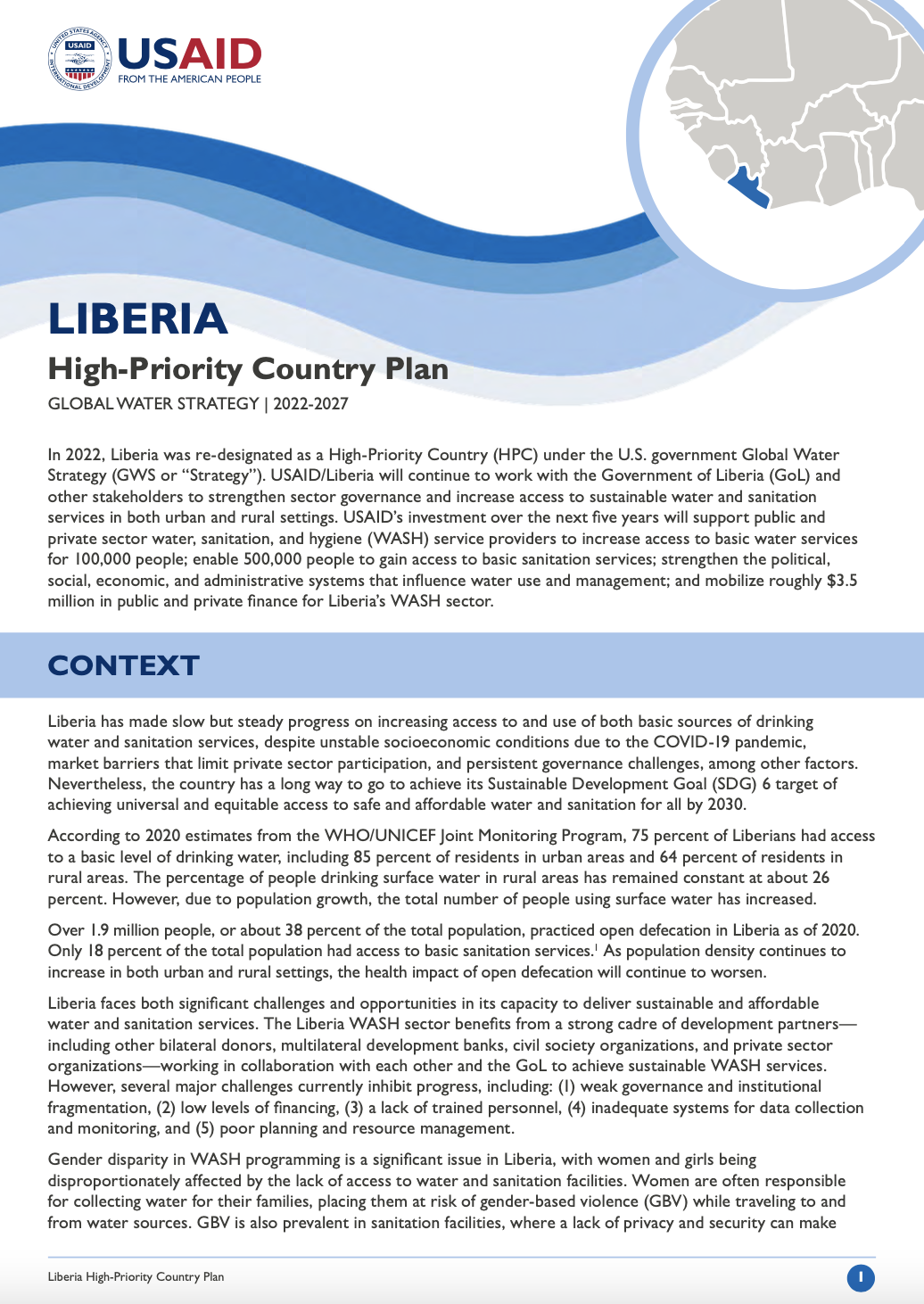Overview
In 2022, Liberia was re-designated as a High-Priority Country. USAID is working with partners in Liberia to:
- Increase access to basic water services for 100,000 people
- Increase access to basic sanitation services for 500,000 people
- Strengthen the political, social, economic, and administrative systems that influence water use and management
- Mobilize $3.5 million in public and private finance for the WASH sector



